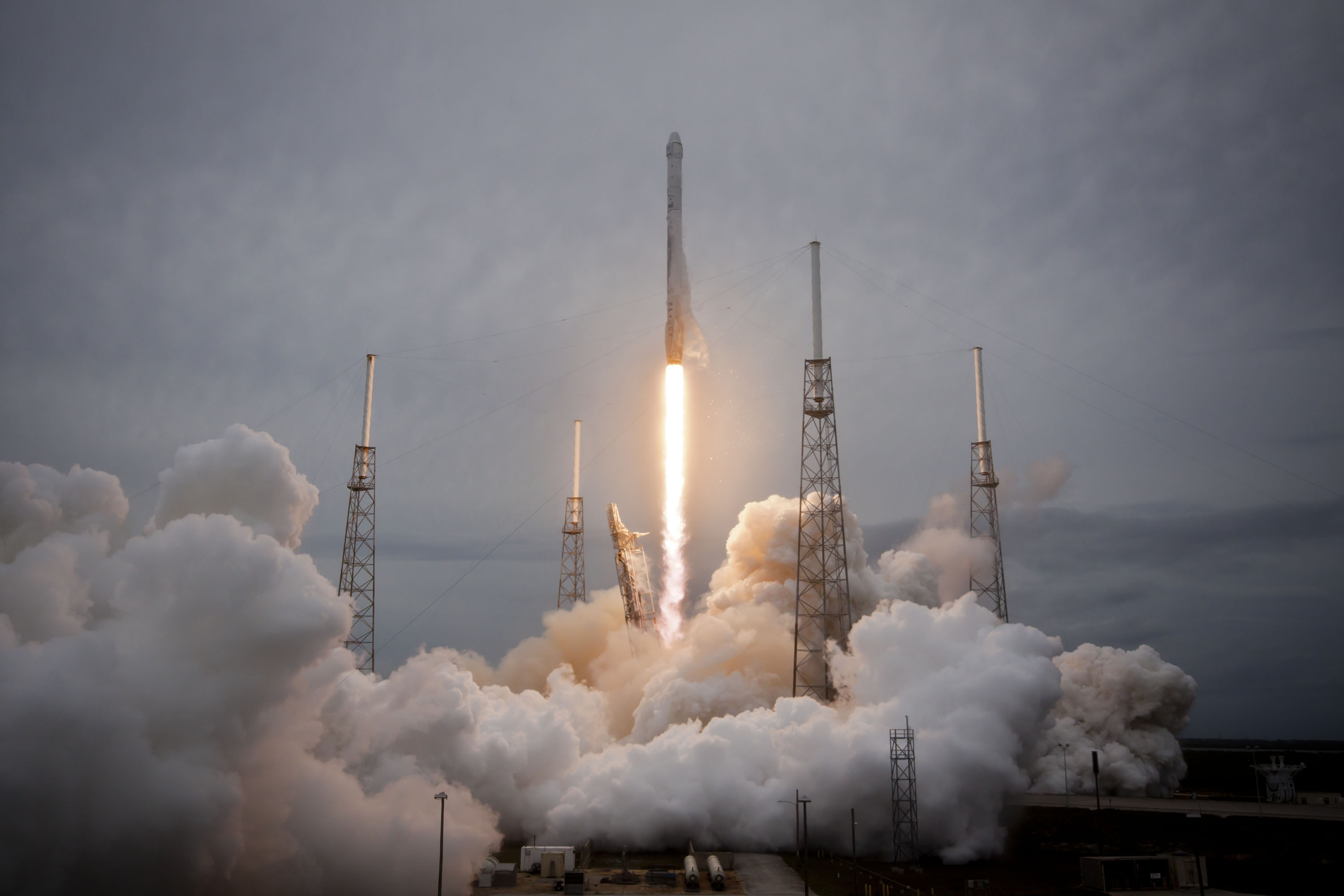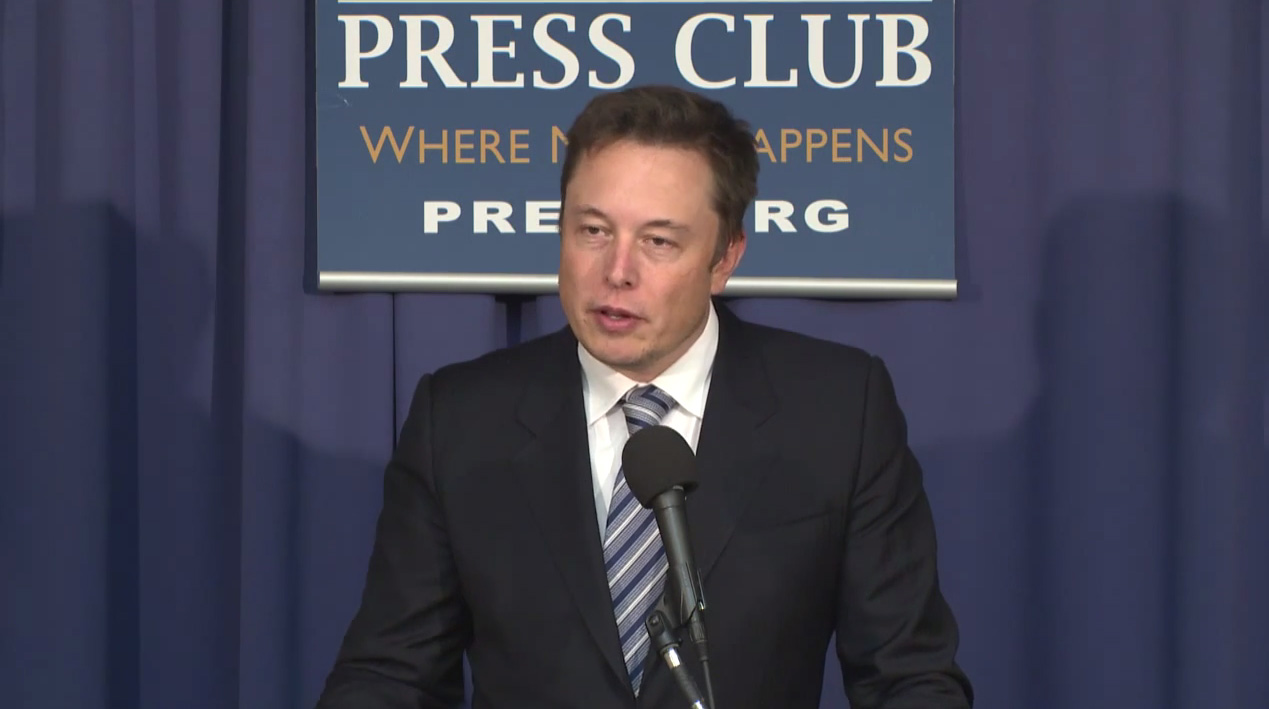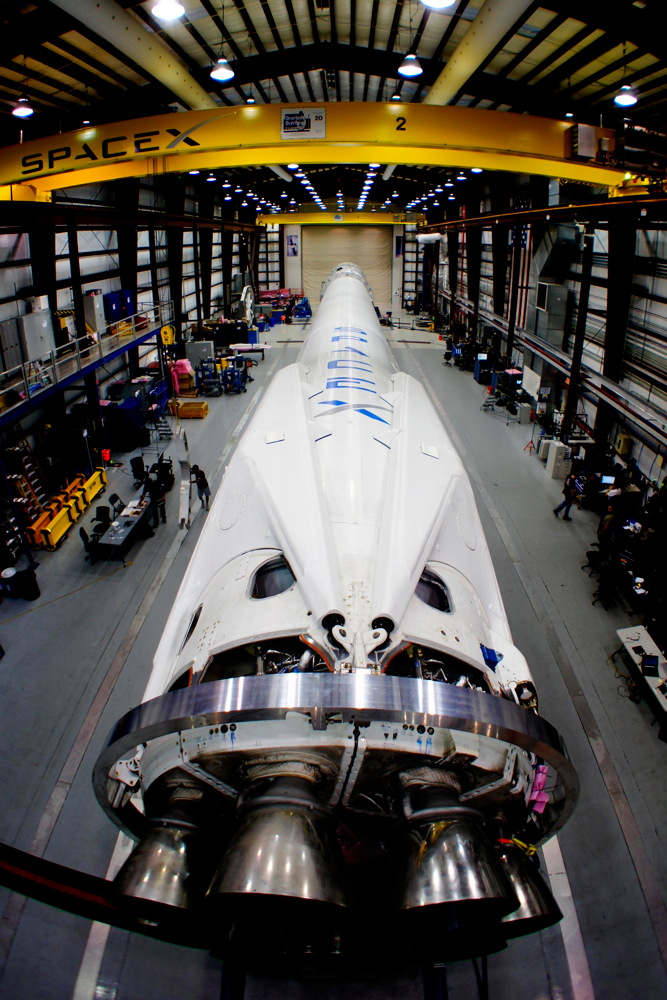SpaceX Reusable Rocket Test an 'Evolutionary' Breakthrough, Elon Musk Says

Breaking space news, the latest updates on rocket launches, skywatching events and more!
You are now subscribed
Your newsletter sign-up was successful
Want to add more newsletters?

Delivered daily
Daily Newsletter
Breaking space news, the latest updates on rocket launches, skywatching events and more!

Once a month
Watch This Space
Sign up to our monthly entertainment newsletter to keep up with all our coverage of the latest sci-fi and space movies, tv shows, games and books.

Once a week
Night Sky This Week
Discover this week's must-see night sky events, moon phases, and stunning astrophotos. Sign up for our skywatching newsletter and explore the universe with us!

Twice a month
Strange New Words
Space.com's Sci-Fi Reader's Club. Read a sci-fi short story every month and join a virtual community of fellow science fiction fans!
The unprecedented reusable rocket test launched by SpaceX last week paves the way for a potentially revolutionary leap forward in the cost of spaceflight, the private company's founder Elon Musk said today (April 25).
SpaceX successfully landed a stage from its Falcon 9 rocket vertically in the ocean after launching it to space. If all continues to move forward, Musk is confident that SpaceX will re-fly a rocket stage sometime in 2015. The Falcon 9 rocket test took place during SpaceX's third official cargo mission to the International Space Station for NASA using its Dragon capsule. After Dragon was sent on its way to the station, the private spaceflight company embarked on the bold reusable rocket test to bring a landing leg-outfitted rocket stage back to Earth and land it vertically in the ocean.
Despite rough weather in the Atlantic Ocean during the test on April 18, SpaceX still managed to land the "boost stage" of its landing leg-outfitted Falcon 9 rocket upright in the water. While stormy seas later destroyed the stage, Musk counts the reusable rocket test as a milestone for the company. Originally, SpaceX representatives gave the ambitious plan a less than 50 percent chance of success. [The Rockets and Spaceships of SpaceX (Photos)]
"No one has ever soft landed a liquid rocket boost stage before, and I think this bodes very well for achieving reusability," Musk said during a news conference at the National Press Club in Washington, D.C. "What SpaceX has done so far is evolutionary, but not revolutionary, and I think if we can recover the stage intact and re-launch it, the potential is there for a truly revolutionary impact in space transport costs."
The private spaceflight company has been working toward making reusable rockets a sustainable reality. Propellant itself is only about 0.3 percent of the cost of an approximately $60 million mission, Musk said. If organizations can re-use rockets, it could potentially lead to a 100-fold improvement in cost, he added.
Musk expects that SpaceX will get more precise with landings as they continue to launch through the rest of this year.
"If all goes well, I'm optimistic that we'll be able to land a stage back at Cape Canaveral by the end of the year," Musk said. "Assuming that happens, we should be able to re-fly the main boost stage sometime next year."
Breaking space news, the latest updates on rocket launches, skywatching events and more!
In theory, a reusable rocket stage should have the ability to fly twice in one day if landed on land and not in the ocean, Musk said. That rapid turnaround is one of the keys to revolutionarily improving the cost of spaceflight, Musk said.
Some pieces of the rocket stage were recovered in the ocean, and SpaceX representatives did capture video of the soft landing. SpaceX is expected to release the video as soon as it is cleaned up. The Hawthorne, Calif.-based spaceflight company is also planning to ask members of the public for help cleaning up the somewhat grainy video they collected during the flight.
"It's somewhat of a huge day because we've been trying to do this with SpaceX for a long time," Musk said. "It has been 12 years and we finally did it, and now we've just got to bring it home in one piece."
During the news conference, Musk also announced that SpaceX is formally protesting the United States Air Force's rocket launch "block buy" contract with United Launch Alliance. SpaceX wants a chance to compete for national security payload launches.
Follow Miriam Kramer @mirikramer and Google+. Follow us @Spacedotcom, Facebookand Google+. Original article on Space.com.

Miriam Kramer joined Space.com as a Staff Writer in December 2012. Since then, she has floated in weightlessness on a zero-gravity flight, felt the pull of 4-Gs in a trainer aircraft and watched rockets soar into space from Florida and Virginia. She also served as Space.com's lead space entertainment reporter, and enjoys all aspects of space news, astronomy and commercial spaceflight. Miriam has also presented space stories during live interviews with Fox News and other TV and radio outlets. She originally hails from Knoxville, Tennessee where she and her family would take trips to dark spots on the outskirts of town to watch meteor showers every year. She loves to travel and one day hopes to see the northern lights in person. Miriam is currently a space reporter with Axios, writing the Axios Space newsletter. You can follow Miriam on Twitter.


